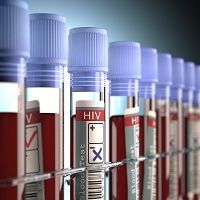HIV Patients Face Increased Risk of Cardiovascular, Kidney Disease Interaction
Patients with HIV are at risk of CVD and CKD, and the likelihood increases significantly as risk levels rise.

Patients with HIV who are at high risk for a heart attack or stroke also are at much greater risk for chronic kidney disease and vice versa, a new study shows.
A team led by Mark A. Boyd, MD, FRACP, a professor at the University of Adelaide in Australia, concluded that doctors should be aware of these risks and treat them as a combined healthcare issue rather than individually.
“People living with HIV and clinicians need to be aware that HIV-infected individuals are at increased risk of CVD and CKD,” Boyd, an infectious diseases expert and Chair of Medicine, Lyell McEwin Hospital, told MD Magazine. “They need to be screened for risks that may lead to these diseases.”
For patients and their doctors, the findings point to the value of identifying areas or habits that an individual can modify and assessing how to make the changes.
Clinicians might encourage HIV-positive patients to maintain healthy body weight, quit smoking, eat well, exercise regularly and treat hypertension, diabetes and dyslipidemia, Boyd said.
The findings were published Nov. 7 in a special issue of Plos Medicine, which focuses on advances in HIV research and treatment leading up to World AIDS Day on Dec. 1.
Boyd and a team from Australia, Europe and the US set out to investigate the diseases associated with HIV infection and its treatment.
They drew on data from the international D:A:D (Data collection on Adverse events of Anti-HIV Drugs) study.
That study focuses on early recognition of adverse events, including cardiovascular problems and liver and renal diseases that could result from HIV treatment. Based on the data, models were developed to predict the risk for CVD and CKD events in HIV-positive people.
Boyd and his team discovered that participants in D:A:D who had a predicted risk of greater than 5% for both CVD and CKD were at even greater risk for heart and kidney-related events.
Using D:A:D data, the team found that more than 1,400 people who were being treated for HIV had also been diagnosed with chronic kidney disease. In addition, more than 900 had had a cardiovascular disease event.
Almost 11% of these patients experienced both CKD and CVD, with many of the events occurring just 1 year apart.
"Our research found that people with HIV at high risk of cardiovascular disease had a corresponding 5.63-fold increase in risk of chronic kidney disease — a finding not consistent with the general community," Boyd said. “The interaction between diseases creates substantial risks for future life-threatening events.”
Boyd explained that if a person with HIV is at risk of both CVD and CKD, the likelihood of an ‘event’ increases significantly as those risk levels rise. "They don’t just add up but they multiply,” he said.
These patients may warrant especially close clinical attention and management, the researchers said.
Conversely, if someone with HIV has a higher risk for only CVD or CKD alone, then he doesn’t have a significant risk of the 'other event,’ Boyd said.
“If they have a raised risk of CVD but not CKD then they are not at significant risk of a CKD [kidney] event,’’ he said.
Prevention and effective management of these comorbidities will convey the same, if not greater, benefits for HIV-positive people than for the general population, the researchers wrote.
“Primary prevention and the effective management of comorbidities should be incorporated into the development of guidelines and defining future research priorities for HIV-positive people,” they advised.
One issue that isn't fully understood is whether people living with HIV have a higher risk of CVD and CKD than HIV-negative people in the community.
“There is some evidence for this,” Boyd said. “But it isn't understood whether that is because they may have in general more risk factors, whether the anti-HIV drugs contribute extra risk, or whether despite full control of HIV from the drugs there is still a higher level of 'inflammation' in people with HIV than in HIV-negative people.”
Inflammation is thought to lead to certain cardiovascular disease events, Boyd said.
“It could be that the increased risks of CVD and CKD, if it is true that this increased risk exists, could be from one or more of those possibilities,’’ he said.
Future research may help to answer those questions.
The study, "Cardiovascular disease (CVD) and chronic kidney disease (CKD) event rates in HIV-positive persons at high predicted CVD and CKD risk: A prospective analysis of the D:A:D observational study" was made available in PLOS Medicine.
Related Coverage
DAAs Stay Effective For HCV/HIV Co-infection